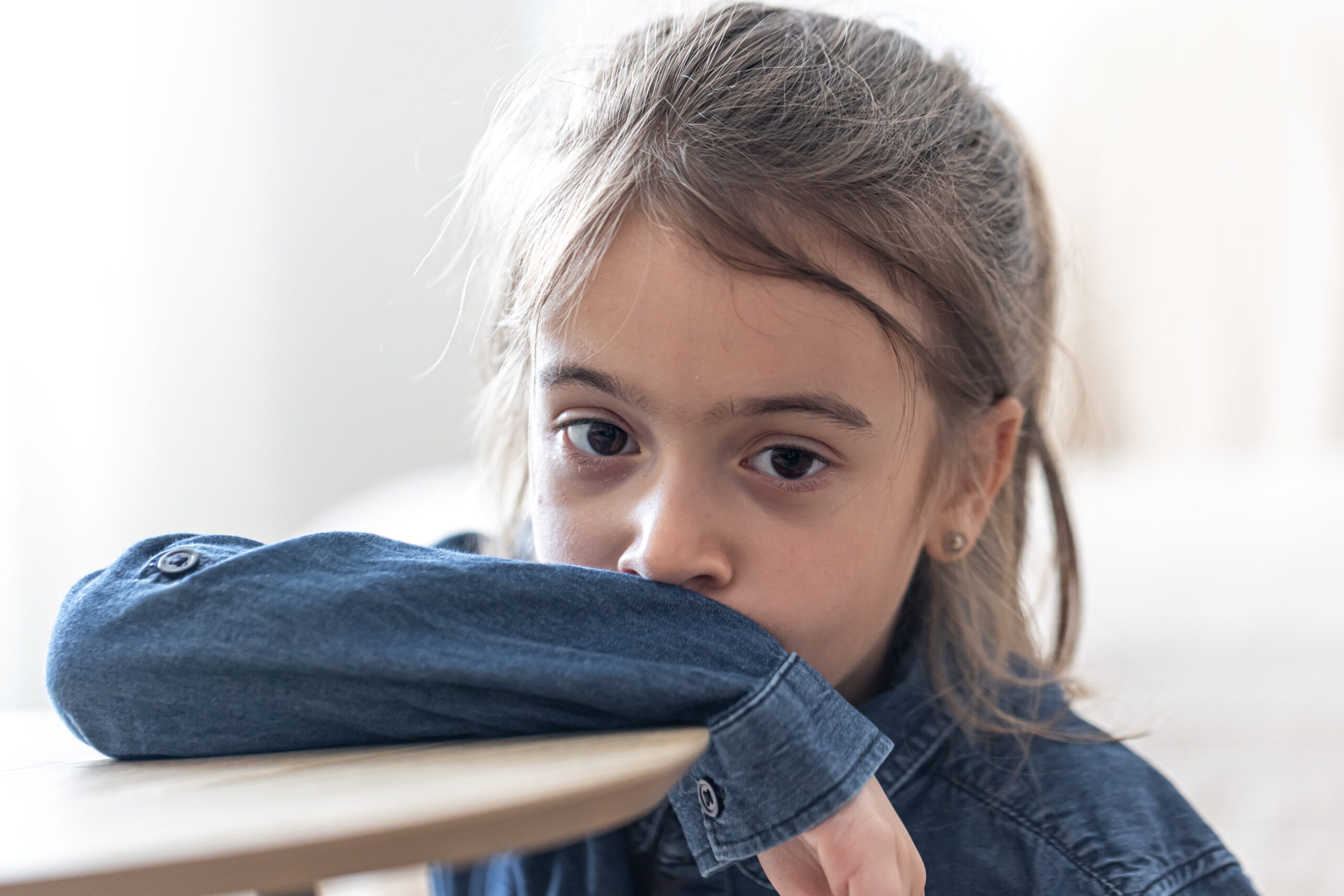Helping Your Anxious Child
Children demonstrate how they are coping through their behaviour. Often they are unable to express verbally what is wrong, and they may not be able to identify it. It is common for stress to show in areas such as sleep (disturbed sleep, nightmares, insomnia), appetite (loss of or increased), mood (increased irritability, mood swings) or behaviour (challenging behaviours).
If you notice changes in your child that have lasted more than a few weeks, consider what might be going on for them, either at school or at home.
Anxiety
Signs of anxiety may be behavioural or physical:
- sleeplessness or fear of sleeping alone • school refusal • withdrawal • appetite loss or weight loss
- poor concentration or appearing distracted • hypervigilant • being easily startled • irritability
- talking constantly about worries • seeking reassurance from adults • physical symptoms such as diarrhoea, nausea, stomach pains, vomiting, trembling.
Why does my child have anxiety?
It is incorrect to argue that anxiety problems are solely biological or brought upon by the environment. Children can be biologically pre-dispositioned to develop anxiety. There is often a close family member or someone in the extended family who has suffered from anxiety, and there is a hereditary component. On the other hand, there are many cases where there is no such family history. There may be a precipitating environmental trigger in the environment, such as a traumatic event. This is often the case with phobias, where a child is frightened by a big dog and then has a fear of dogs for life.
The only case where it is important to answer the question of ‘why?’ is where there is a suspicion that the child is currently undergoing trauma or stress in the environment which needs to be addressed; for example, in the case of abuse or bullying.
When to get help for childhood anxiety?
When the anxiety is having a significant effect on the child’s life either in the home setting or at school, and the problem has persisted for more than a few weeks, it may be time to seek professional help. Perhaps a first step could be to approach your child’s school and see if they have a school counsellor or psychologist available. Explain to your child that it is a good thing to seek help from others when you are having a problem. Do not make them feel inadequate or ashamed at having to see a medical professional.
Many therapists will use cognitive behaviour therapy in treating anxiety. This is known to be a highly effective form of treatment. What it means is educating the child about their feelings, cognitions and behaviour, and enabling them to understand how these are causally linked. In anxious children, their anxious feelings and behaviour are usually linked to ineffective and inaccurate thinking habits, or ‘thinking errors’. For example, a child who ‘overgeneralises’ may fear going to a swimming pool because of one frightening event that occurred at a swimming pool. A child who ‘fears the worst’ all the time, inaccurately predicts that their worst fear will always happen. These are two examples of thinking errors that can be worked on with a child. Raising their self awareness of their feelings, and giving them the strategies to cope when they feel the anxiety will empower them to deal with situations.
Strategies can be physical; ie. breathing and relaxation exercises, or mental ie. visualisation and guided imagery. Some psychologists use hypnosis which provides a deeper level of relaxation and uses alterations in consciousness to change automatic thoughts and behaviours.
What can parents do to help their anxious child?
- Be a role model for your child by talking positively.
- Never put your child down for having anxiety. Although it is frustrating for you as a parent, reducing your child’s sense of self worth will only make them more vulnerable.
- Be on the look out for signs of depression, as depression and anxiety are often linked. If your child becomes excessively down and teary, and more withdrawn from things that usually interest them, seek medical help.
- Read them books about feelings to encourage feelings awareness. There are many good books about different situations and you may be able to locate one from your library or book shop on the issue your child is afraid of, for example, going to the dentist, starting school etc.
- Be supportive of your child but not obsessively reassuring.
- Learn relaxation techniques such as deep breathing, progressive muscle relaxation, mindfulness, meditation or self hypnosis and do these with your child. As a parent, you are the strongest role model and have the strongest influence on your child. If you have anxiety yourself, it will benefit you and your child to get assistance.
- Encourage the child to talk about their worries but put limits around this. For example, have a Worry Time for 10 minutes at a certain time of day, when they can think about/talk about their worries, and when the time is up, they put the worries to one side.
- Prevent your child from worrying about ‘adult’ issues by not talking about finances, etc. in front of your child.
- Do not think you are helping the child by allowing them to avoid feared places or objects. They need supported, gradual exposure to their fears in order to overcome them. Your goal as a parent or adult is to empower them and help to build their resilience to manage anxious feelings.

